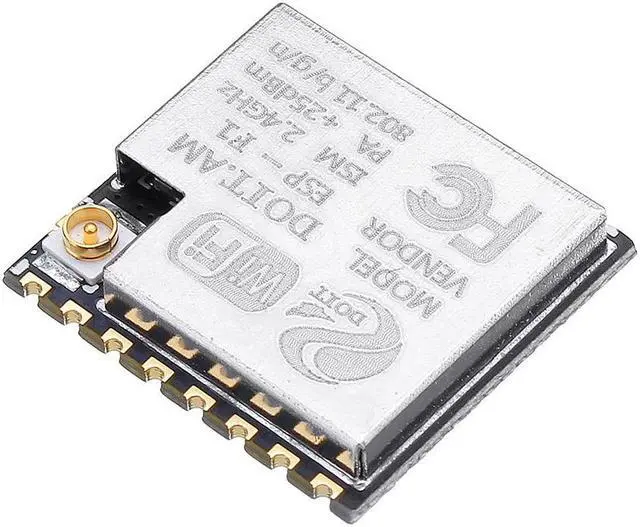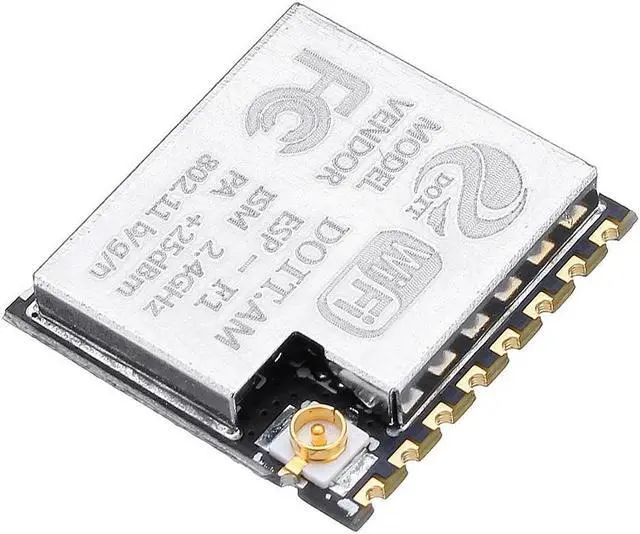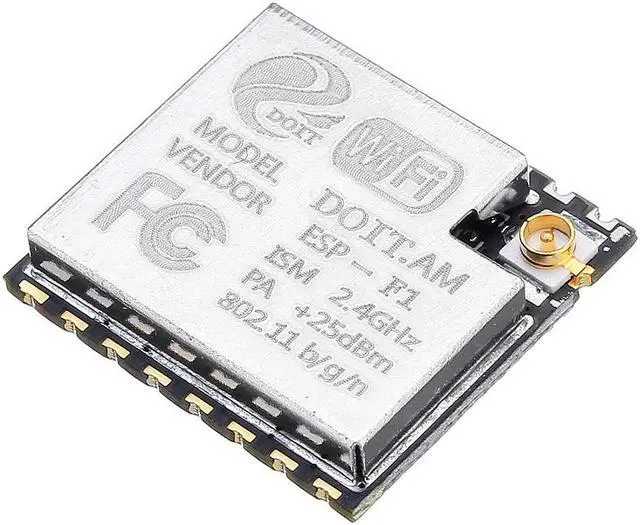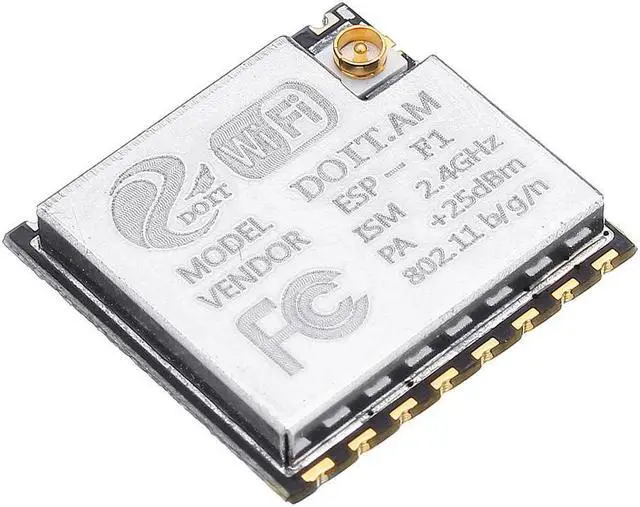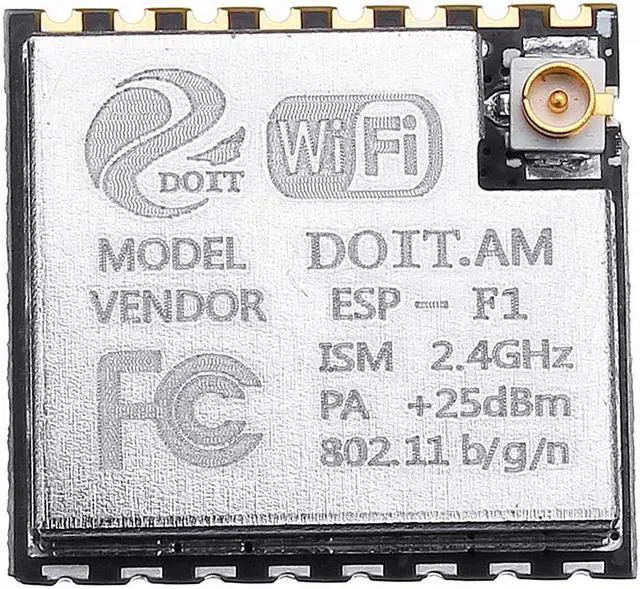Features:
ESP-F1 module core processor uses high cost performance chip ESP8266EX. The chip integrates the industry-leading Tensilica's L106 ultra-low power 32-bit micro MCU with 16-bit streamlined mode, 80 MHz and 160 MHz main frequency support and RTOS support in smaller size packages. ESP8266EX has a complete Wi-Fi network function, which can be used independently and run as a slave on other host MCUs. When ESP8266EX is applied independently, it can be booted directly from external Flash. The built-in cache memory is helpful to improve the system performance and optimize the storage system. In addition, ESP8266EX can be used as Wi-Fi adapter only through SPI/SDIO interface or I2C/UART interface, and can be applied to the design of any microcontroller.
ESP-F1 module supports standard IEEE802.11 b/g/n/e/i protocol and complete TCP/IP protocol stack. Users can use this module to add networking functions to existing devices, or to build independent network controllers.
ESP-F1 module provides maximum practicability at the lowest cost, and provides infinite possibilities for Wi-Fi function to be embedded in other systems.
Specification:
Frequency range: 2.4G~2.5G (2400M~2483.5M)
Transmission power: 802.11b: +20 dBm
802.11b: +17 dBm
802.11b: +14 dBm
Receiving sensitivity: 802.11b: -91 DBM (11Mbps)
802.11g: - 75 DBM (54Mbps)
802.11n: - 72 DBM (MCS7)
Antenna: PCB board antenna
CPU: Tensilica L106 32 bit microcontroller
Peripheral devices: UART/SDIO/SPI/I2C/I2S/IR remote control
GPIO/ADC/PWM/SPI/I2C/I2S
Working voltage: 2.5V ~ 3.6V
Average current: 80 mA
Working temperature: - 40 C ~ 85 C
Ambient temperature range: - 40 C ~ 125 C
Package size: 16mm x 24mm x 3mm
